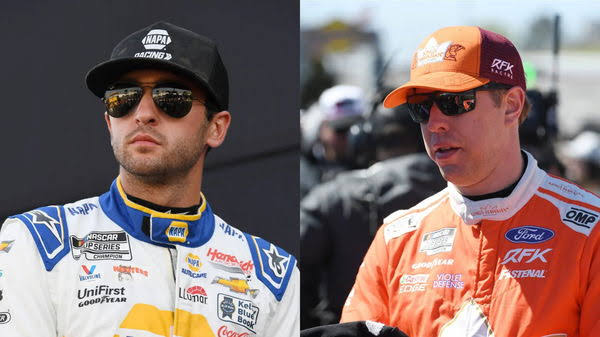
Brad Keselowski and Michael Waltrip have both expressed support for NASCAR’s decision to suspend Chase Elliott following his intentional crash into Denny Hamlin during the 2025 Coca-Cola 600. Keselowski, who was in close proximity to the incident, described the situation as unfolding rapidly and emphasized the severity of the crash. He noted that such actions pose significant risks at high speeds and that NASCAR’s response was necessary to maintain safety standards.
Waltrip echoed Keselowski’s sentiments, highlighting the intentional nature of Elliott’s maneuver. He commended NASCAR for its decision, pointing to the analysis of SMT data that confirmed the deliberate action. Waltrip differentiated between racing incidents and intentional wrecks, asserting that the latter endangers drivers and undermines the sport’s integrity.
NASCAR President Steve Phelps also addressed the suspension, acknowledging the difficulty of the decision but affirming its necessity. He referenced previous incidents, such as Bubba Wallace’s suspension for a similar action, to underscore the importance of consistent enforcement of safety protocols.
Rick Hendrick, owner of Elliott’s team, expressed understanding of the suspension while emphasizing the fine line between aggressive racing and intentional wrecking. He suggested that drivers’ frustrations, especially when repeatedly roughed up by the same competitor, can lead to retaliatory actions. Hendrick advocated for resolving conflicts outside the car to maintain the sport’s integrity.
Despite the support for NASCAR’s decision, some figures within the sport have criticized the severity and consistency of penalty enforcement. Dale Earnhardt Jr. and Rick Mast have argued that penalties should be more consistent and that generalized warnings might be more appropriate for certain infractions. They believe that inconsistent rule enforcement undermines trust among drivers and officials.
conversation about the balance between aggressive racing and safety in NASCAR. While some support the disciplinary actions taken, others call for clearer guidelines and more consistent enforcement to ensure fairness and maintain the sport’s integrity.
As the season progresses, the NASCAR community continues to evaluate the impact of such decisions on driver behavior and the overall safety of the sport. The ongoing dialogue reflects the complexities of maintaining competitive spirit while prioritizing the well-being of participants.




